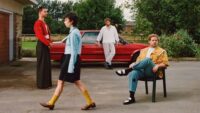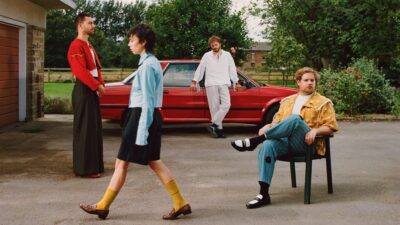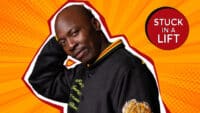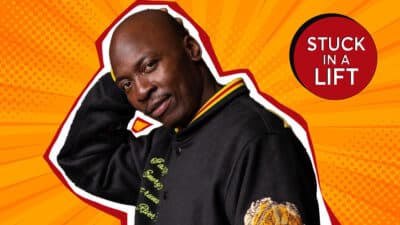Music
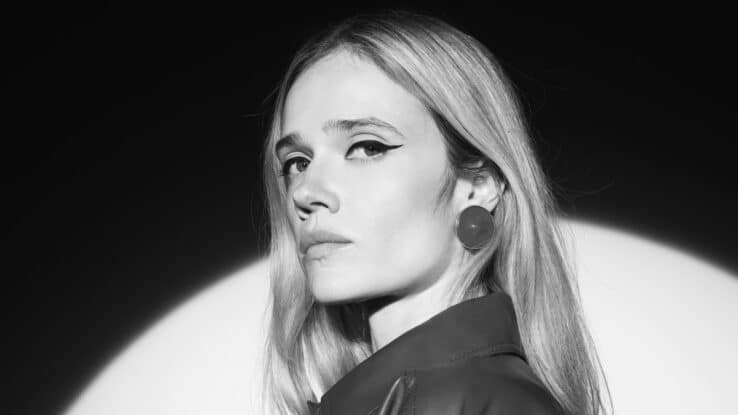
Interview
Florrie: “I’m just very grateful I’m still able to do this”
The pop singer-songwriter on working with Girls Aloud, her debut album, and why this feels like ‘take two’ of her music career
When Florrie was brought on-board with music production company Xenomania as their in-house drummer, her first job was playing on Girls Aloud’s ‘The Promise’. Sixteen years later, she opened for them on tour.
“It does feel really special,” she says. “I was surprised to get it in a really nice way, because I thought, oh, they’ve probably got a DJ and it’s been a while, but all the girls said they were really up for it. We reached out to the management and then waited a few weeks, and then got a message from the girls saying they’d love for me to do it. It does feel like a really nice circle. I’ve seen Nadine quite a bit, just through mutual friends, and she’s always so supportive. She’s my hype girl.”
Breaking out as an artist in the early 2010s, Florrie quickly became disillusioned with the industry and the reality of a major label deal. The next decade sent her on a journey to rediscover her love of music, taking the plunge as an independent artist, and eventually signing a deal for her debut album. Now she’s fresh off a tour with G Flip – “It was just drummers everywhere”, she says, which was “brilliant” – and promoting The Lost Ones, a perfect pop culmination of everything she’s been through up to this point. We caught up with Florrie to chat about her varied career and what she hopes people take away from her debut record.
Before we talk about the album, can you tell me a bit about when you first got into music?
I left school when I was 17, and I was in a band as a drummer. We had a very small development deal, which looking back was totally dodgy, but I didn’t really know that at the time. We moved to London, and I was drumming a lot in that band and doing session work. Then I met Brian Higgins at Xenomania and started as the in-house drummer. They were working with a lot of artists, like big artists, but also kind of developing their own as well. So I played drums with all of them, and then got into writing really through being there. But it was early days, and I always just identified as a drummer.
When you look back at that time with Xenomania now, how do you reflect on it?
It was honestly the craziest time of my life. I just really wish I’d kept a diary, because I have quite a bad memory. Luckily, I still work very closely with Brian, the producer at Xenomania. We’ve made this record together and co-produced the whole album. But I didn’t realise at the time how special it was. It was a five-year period where I was touring all over the world and doing lots of fashion gigs, and just playing in the most random places. I kind of just walked into it, so I didn’t really appreciate it at the time, whereas now, having gone through a bit of a rollercoaster, I think I was incredibly lucky. We worked really hard. I still work very hard, but it was a different level back then. When Girls Aloud were down, and these artists were coming down, we’d work 20-hour days and it would just be a normal thing, staying in the studio until one or two in the morning. It’s a little bit more relaxed now.
Did you ever feel at the time that you were in danger of burning out?
No, I don’t think so. I was in my early 20s and had this unending energy, and everything was so exciting. I think it just keeps you going. I never felt burnt out, really. It sounds a bit crazy, but everyone was so passionate and felt very lucky, and wanted to be there. It was an amazing group of super talented musicians and writers.
Around that time you had experience working with a major label as an artist – what made you want to pursue independent music instead?
To be honest, I just had a bit of a nightmare there. I had about four different product managers. I was passed around a lot. The guy that signed me got let go of after six months. I didn’t really feel like I ever had a proper home and a proper team there. I think that’s a big, big reason. Also, I made a record and they weren’t really into it, and they said, “We want you to go and try writing with lots of different producers and writers in LA.” They were all amazing, but I was very confused, and I didn’t really understand how to go in for one day and finish a song off. That’s not really how I work. I like to really spend time on things, which is a luxury. I knew it was coming. They said, “If this doesn’t do well, we’re going to drop you.” So I knew it was happening about three months before it did.
That was said outright to you?
Yeah, they said it. Actually ‘Real Love’ did fairly well. I remember the video got a million views in a week, which for a small artist was kind of impressive, but I think they’d just made up their minds, to be honest. It was not great. I just knew this impending doom was upon me. I learned a lot from it, though, and I would do things very differently this time around.
Your career has been really characterised by the way in which you’ve cultivated your relationship with fans, with free releases and your active internet presence and things like that. How is that relationship these days?
I actually feel way more engaged now with fans than I than I ever really did before. I think releasing the stems and the free music and everything was great. I loved doing that. But in terms of actually trying to talk to people one on one – I tried to reply to every DM. I set myself this challenge about two years ago. Sometimes I’m like, “Oh my God,” but I do try and sit down and get back to people. It’s that same thing again – I like to understand people and learn about them. People are very open with me, so I try and do the same thing. That’s not something I did before. I would have always been a step back from it, I think, whereas now I write differently. I try to write very honestly and I guess I have more confidence sharing my vulnerabilities than I did the first time around.
Does this feel to you like a second time around, then?
It kind of does. It’s a weird thing saying ‘time around’, because I’m like, what does that mean? What expectations am I putting on myself or are other people putting on me? But I do feel it, because there was a point when I nearly gave up, and that’s why it feels like a second time around. I’m here. I’ve made an album. I’m back making music, doing something I love. More than any than anything else, I’m just very grateful that I still am able to do this, and I’ve got a great team and a great label and manager. I feel very lucky, and I think that’s a nice way to come at it, because I didn’t necessarily feel like that the first time I was releasing music. I probably had way too high expectations, whereas now I’m just grateful I can make a living and write and put out music.
Are you feeling able to put less pressure on yourself?
One hundred percent, and I’m just enjoying everything so much more. I was thinking this about the G flip tour. I think I’m a bit of a perfectionist, and I used to be a real perfectionist, and I would have stressed out so much at prepping for the tour. I’m very conscientious with that kind of thing – I do like being very well rehearsed. But it was so much more enjoyable this time, because I’m not piling that pressure on myself. I want to put on the best show I can, but I’m only human, whereas before I would have really beaten myself up about it.
What made this the right moment to step back into music and release a debut album?
I’d always wanted to write an album. I was writing a lot of songs for a five-year period with the intention of eventually releasing an album, although I didn’t know when. The album was really written from a pretty low place at the start, and I kind of found my way back. I think I finished the record and just knew I wanted to put it out. Things kind of, in a really nice way, fell into place. I found a new manager, Charlie, who’s great, and then BMG wanted to come on board, which was also amazing, because I planned to release this completely independently. They’ve just been completely supportive, totally different from the last time I was signed to a major label.
You’ve said you had to pick from about 100 songs to find that 12. What was that process like?
There were a lot of songs. Even now, I’m like, “Oh, that one really had potential.” There were different versions, songs I took off, and songs I added, and I kind of shuffled it around quite a bit, but I’m really happy with it. For me it kind of tells this story of finding myself again, without sounding cheesy. There were a lot of songs left on the cutting room floor. Some of them might see the light of day again. Sometimes I do that – I take pieces from abandoned songs. But I wanted to make sure every song on the album was really important to me, and also is a banger. I don’t like filler songs on albums.
I guess that’s why it took quite a long time, because I just wanted to get it perfect. You can only release your first album once, right? I had the luxury of time, too, because I was just kind of releasing singles, which also built my confidence back a lot. I can’t believe it’s out. It’s just come around so quickly.
What do you want people to take away from this record?
I always try and write to uplift people. So although some of the subject matter, lyrically, is a little darker, a little sadder, I always make sure that there’s something uplifting in the production, or the chords, so you can take something positive from it. I just hope people connect with it. I get so many messages from people saying, “This really helped me through this.” Or, “I related to this.” I like to think that I write in a way where you can kind of relate the lyrics to your own situation. I hope it’s a record that uplifts people.
Find more concerts and tours here.
The Lost Ones is out now






